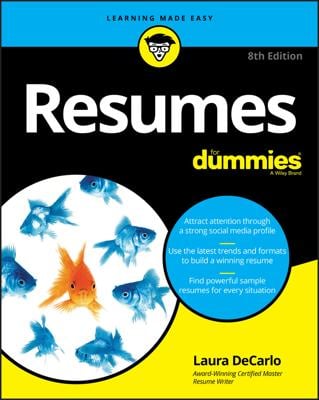If you want to strengthen your image in your resume, consider drawing from your activities, organizations, awards, and licenses. Also, you can include testimonials that show you’ve got the right stuff. Here are a few thoughts on the nitty-gritty of buffing your image.
Activities
Activities can be anything from hobbies and sports to campus extracurricular participation. The trick is to analyze how each activity is relevant to the target job; discuss skills, knowledge, or other competencies developed; and list all achievements. Make sure that this section doesn’t become meaningless filler.
Avoid potentially controversial activities: Stating that you’re a moose hunter won’t endear you to animal-loving recruiters. If you’ve been able to research the reader and have found that you share a common interest, list it on your resume so that it can become an icebreaker topic in an interview.
Organizations
Give yourself even more credentials with professional and civic affiliations. Mention all important offices held. Relate these affiliations to your reader in terms of marketable skills, knowledge, and achievements. A high profile in the community is particularly important for sales jobs.
Just as you should be careful about which activities you identify, so too should you be sensitive to possible pitfalls in organization memberships:
Listing too many organizations may make the reader wonder when you’d have time to do the job.
Noting that you belong to one minority group organization may work in your favor, but reporting your membership in five minority group organizations may raise red flags. The recruiter may worry that you’re a trouble-making activist.
Don't list your membership in religious or political organizations (unless you’re applying for a job that requires such membership). They don’t apply to your ability to do the job, and some readers may use them to keep you out of the running.
Honors and awards
List most of the achievements for which you were recognized. However, if the achievement had zero to do with work or doesn’t show you in a professional light, don’t take up white space with it; for example, you wouldn’t list a Chili Cook-Off award unless you’re applying for a job as a chef.
Licenses and samples of your work
If you’re in the legal, certified accounting, engineering, or medical profession, add to your resume the appropriate license, certifications, and other identifications required for the position. For a professional resume, you may also list descriptions or titles of specific work that you’ve done or include samples of your work along with your resume.
If asked to include samples of your work, be selective about what you send.
Testimonials
After citing an achievement, you can follow up with a short, flattering quote from your boss or a client. Here are some examples:
For an information systems technician: Bob Boss told the entire office that “I am thrilled that Charlie Pitman cut Internet access and telephone costs by 80% [date].”
For a sales rep at a copy shop. “Jennifer Robertson’s resourcefulness in getting inside the SoapSuds account and expanding it by 15% after others had tried for months is truly impressive,” said Barbara Boss, my direct supervisor in [date].
Testimonials work, or advertisers wouldn’t spend billions of dollars to use them. Be sure to check with your source before adding a quote to your resume.

